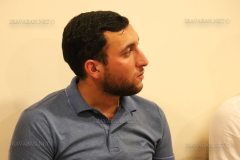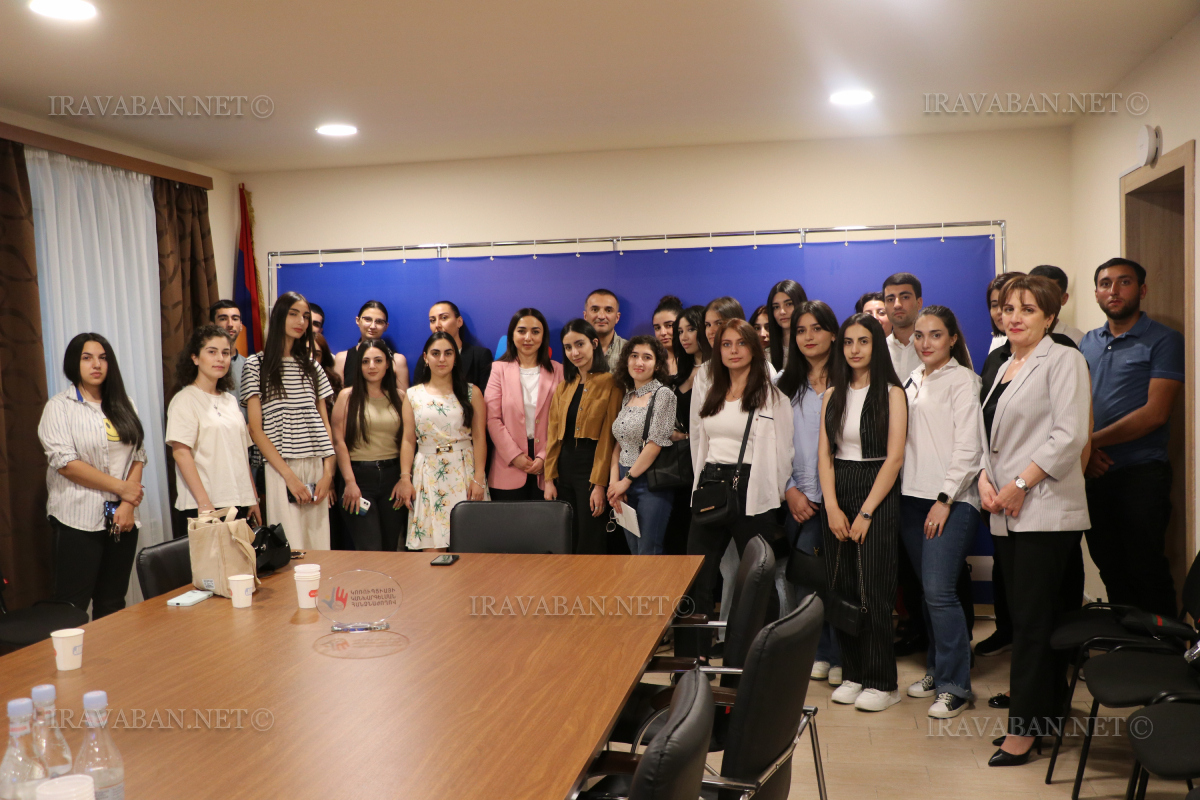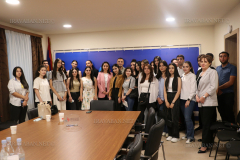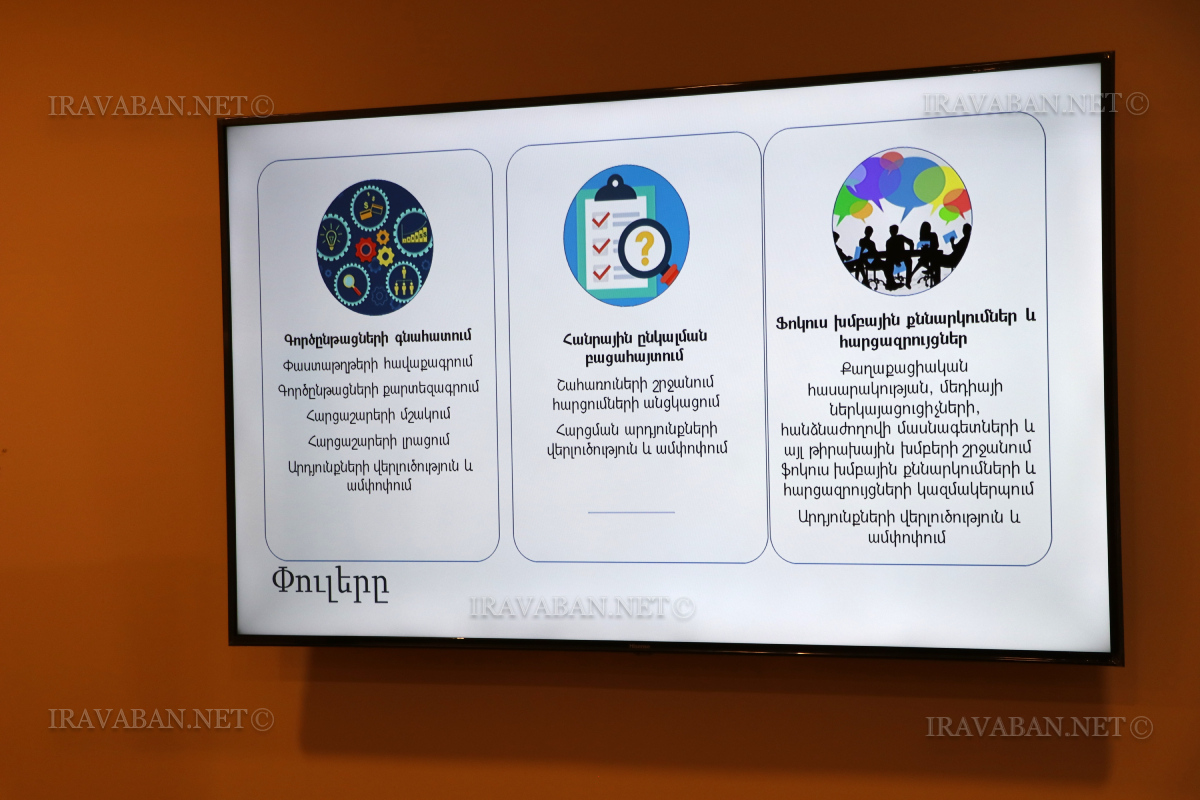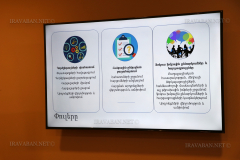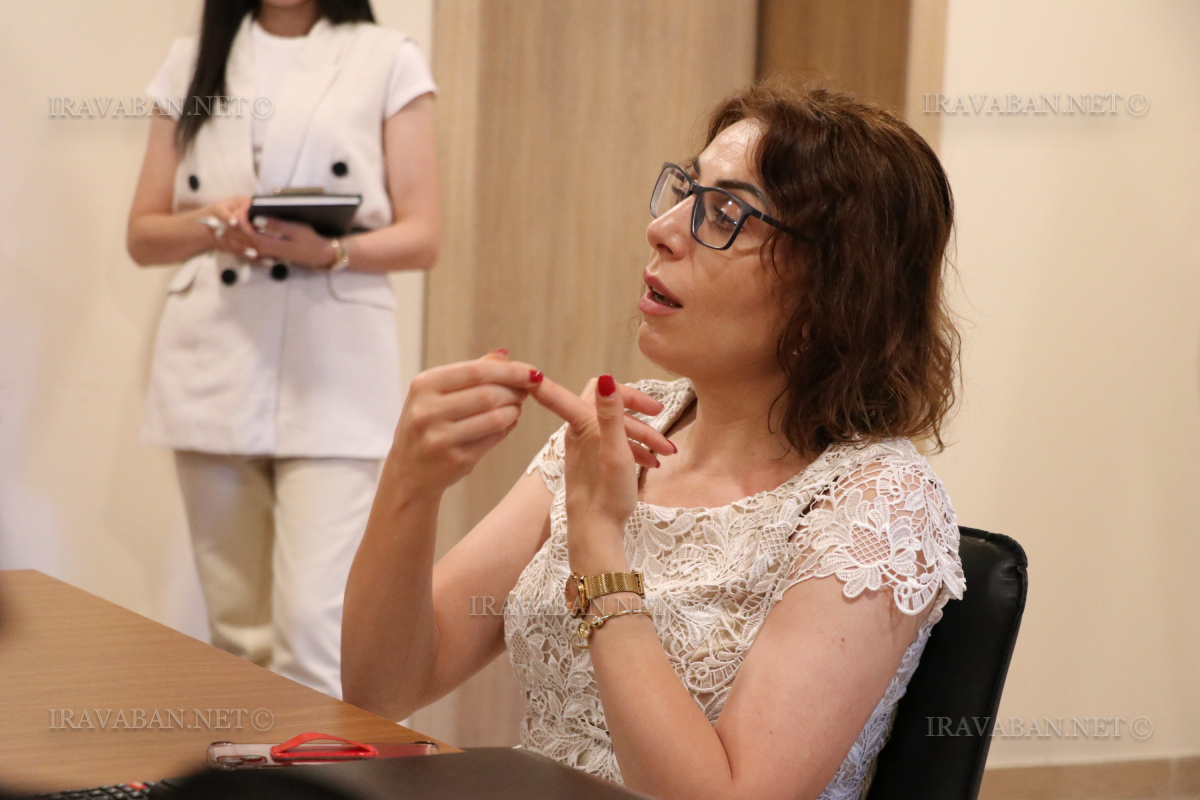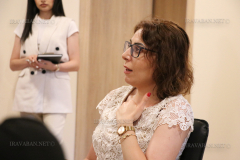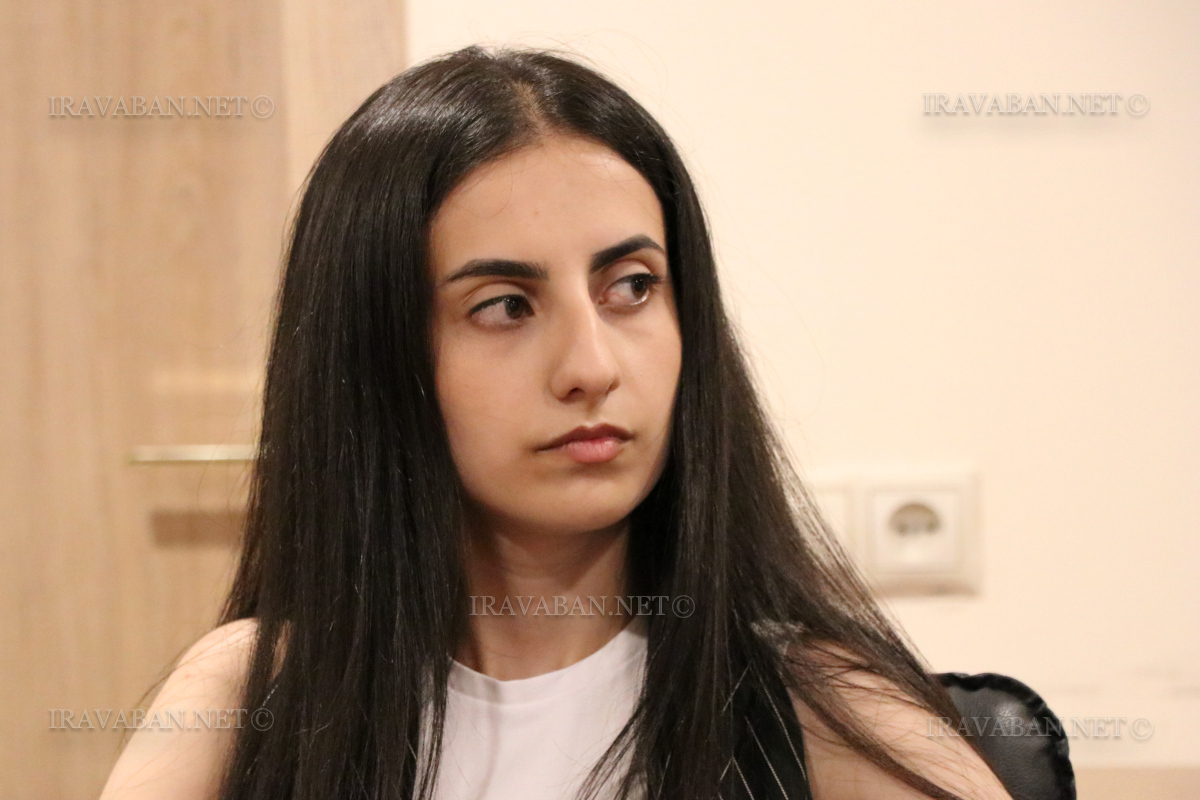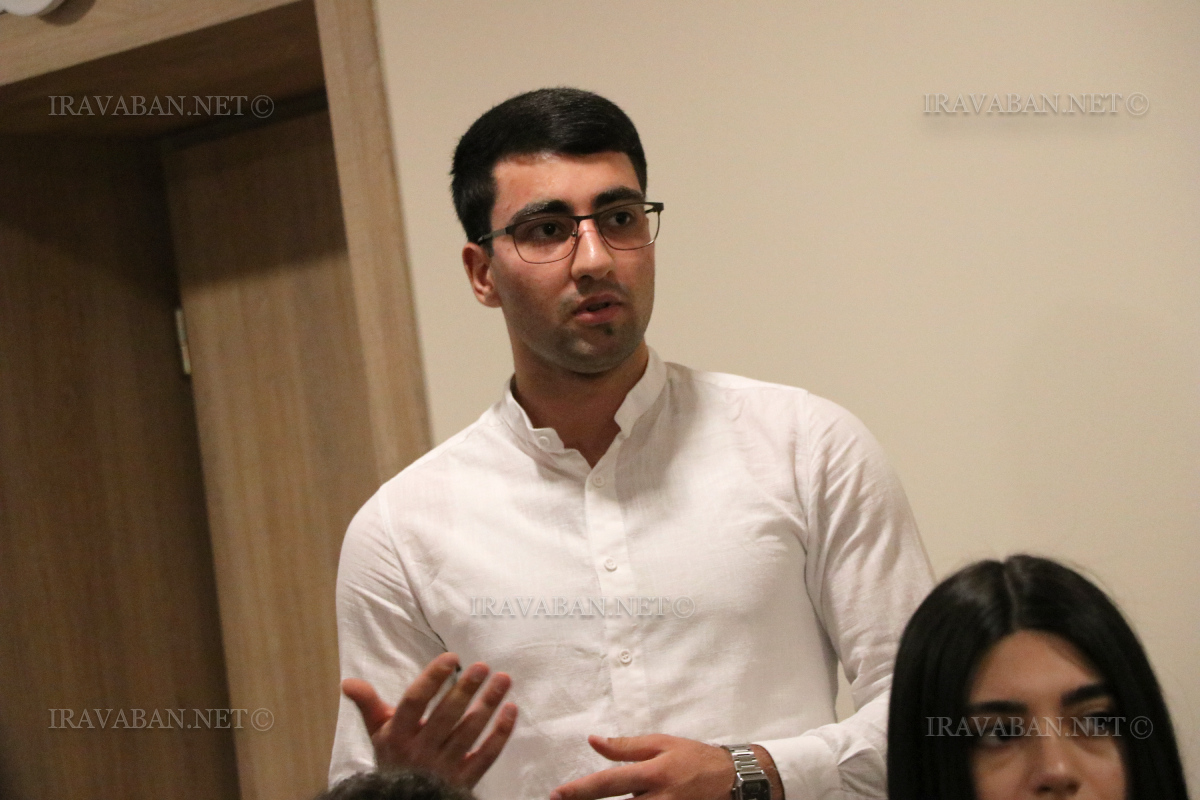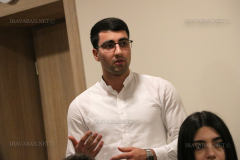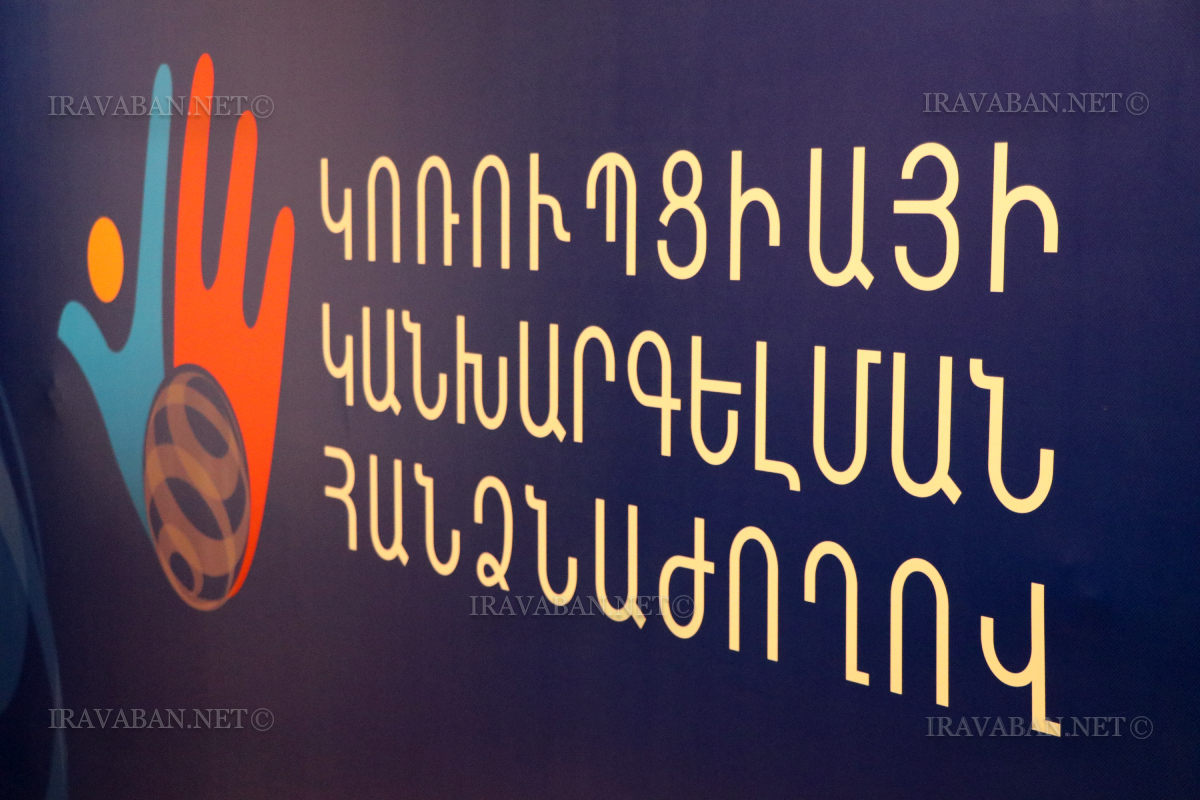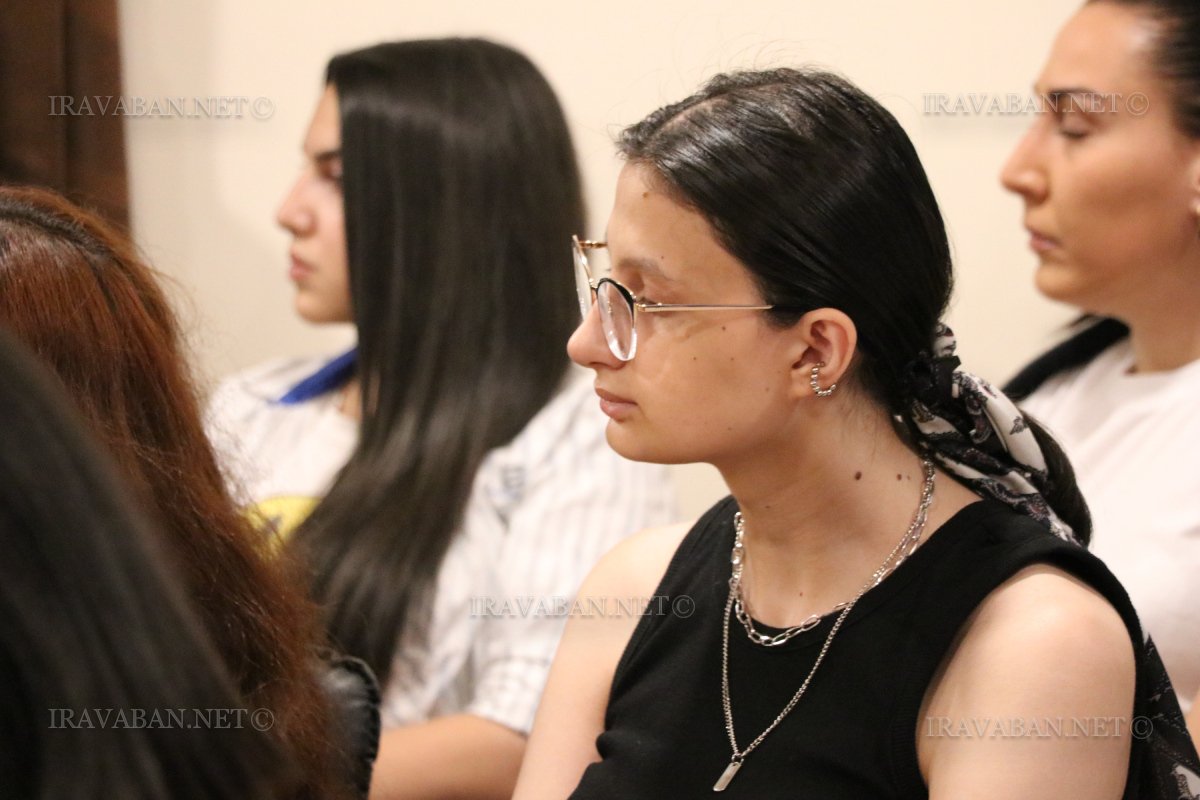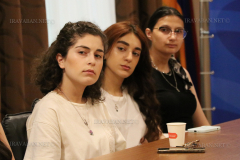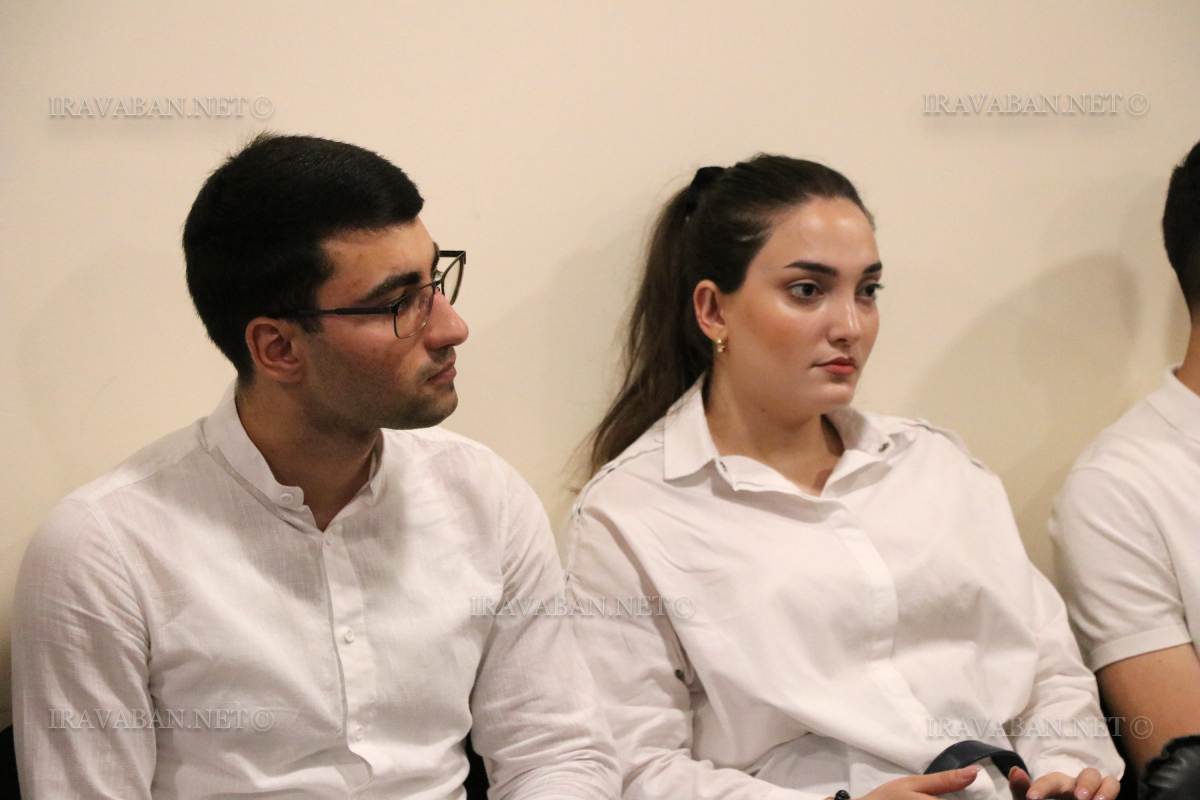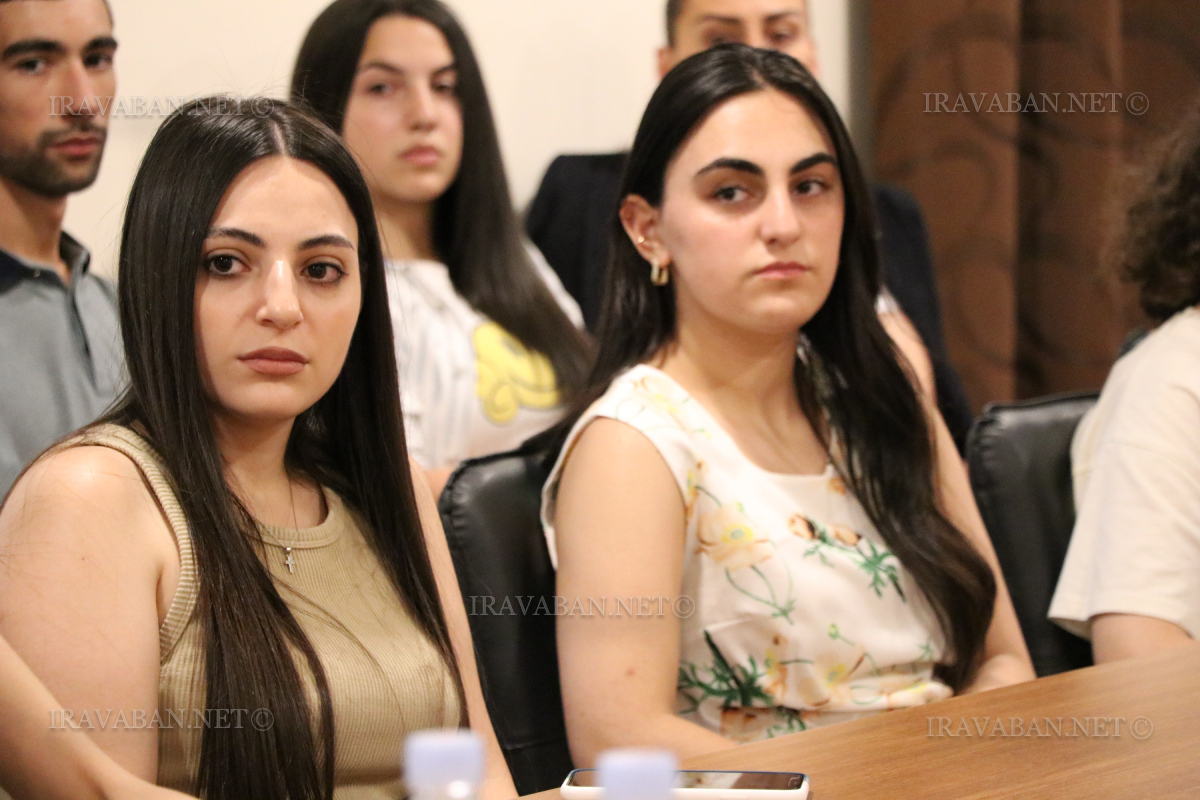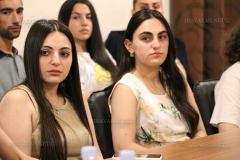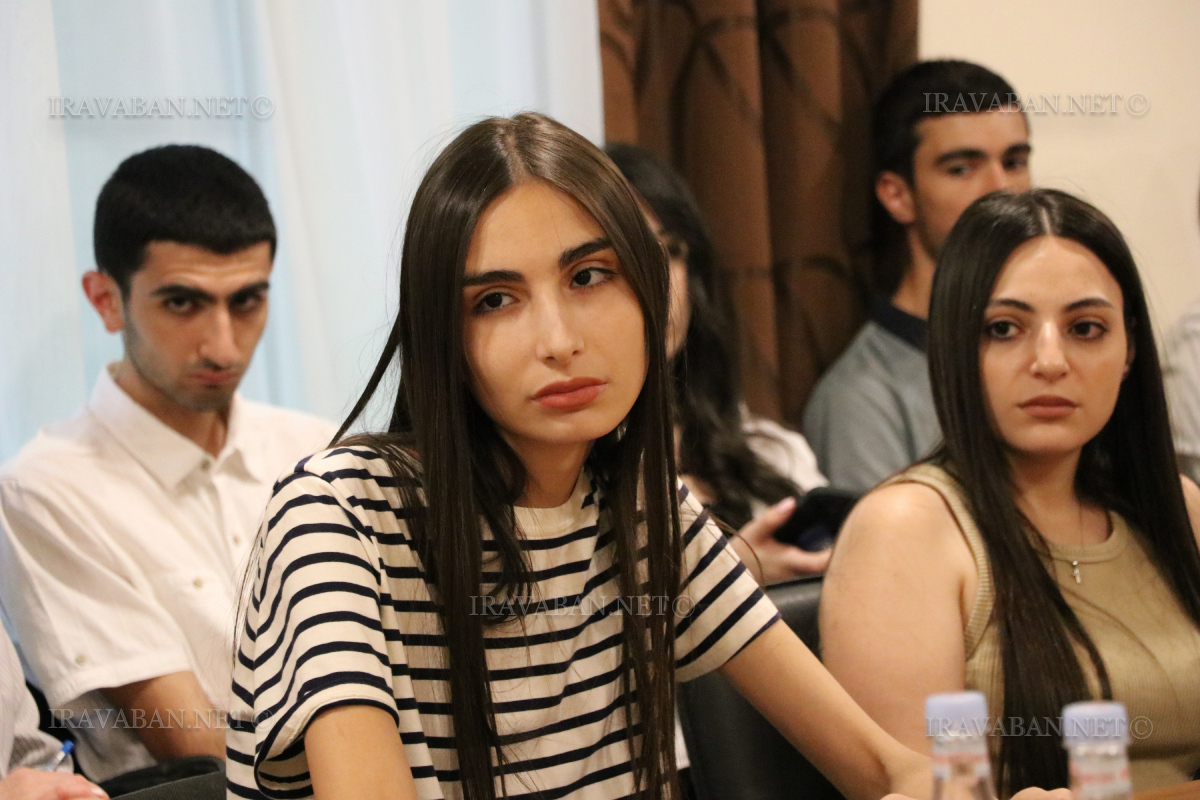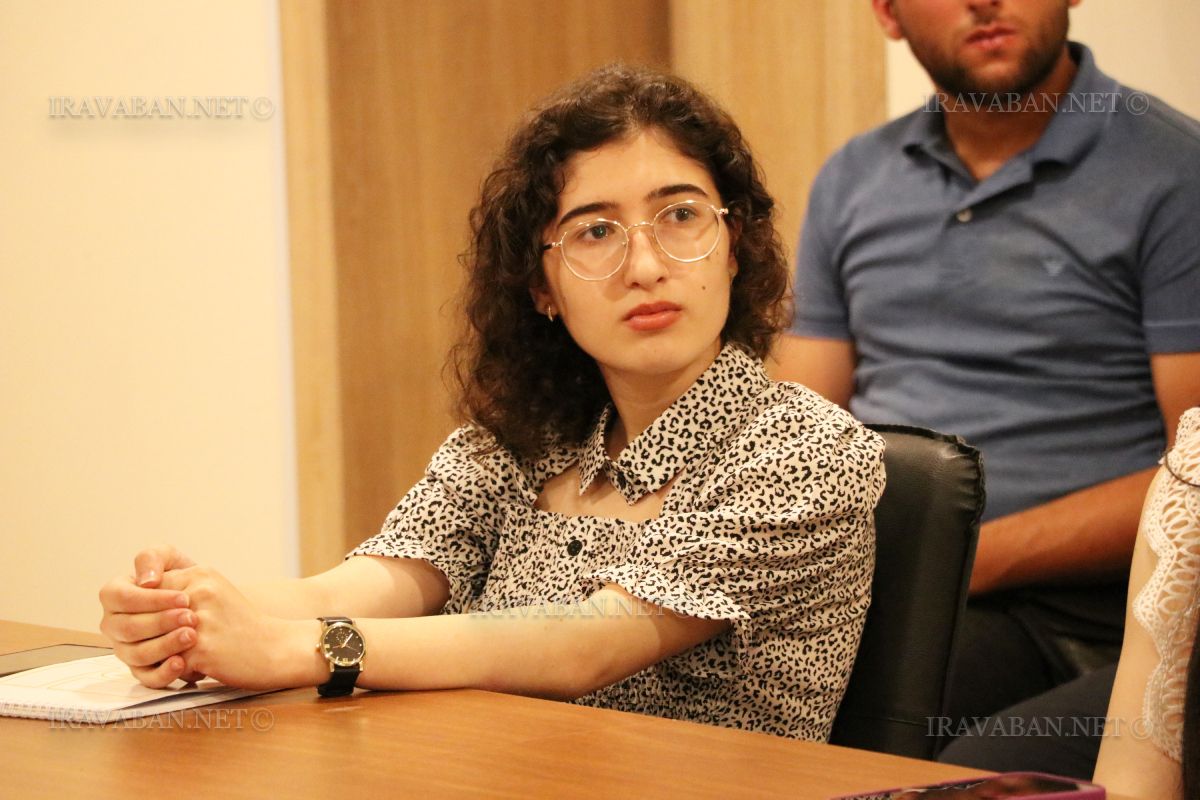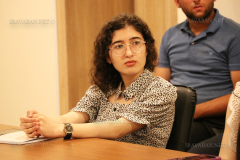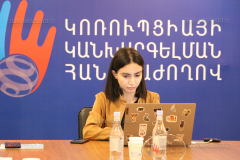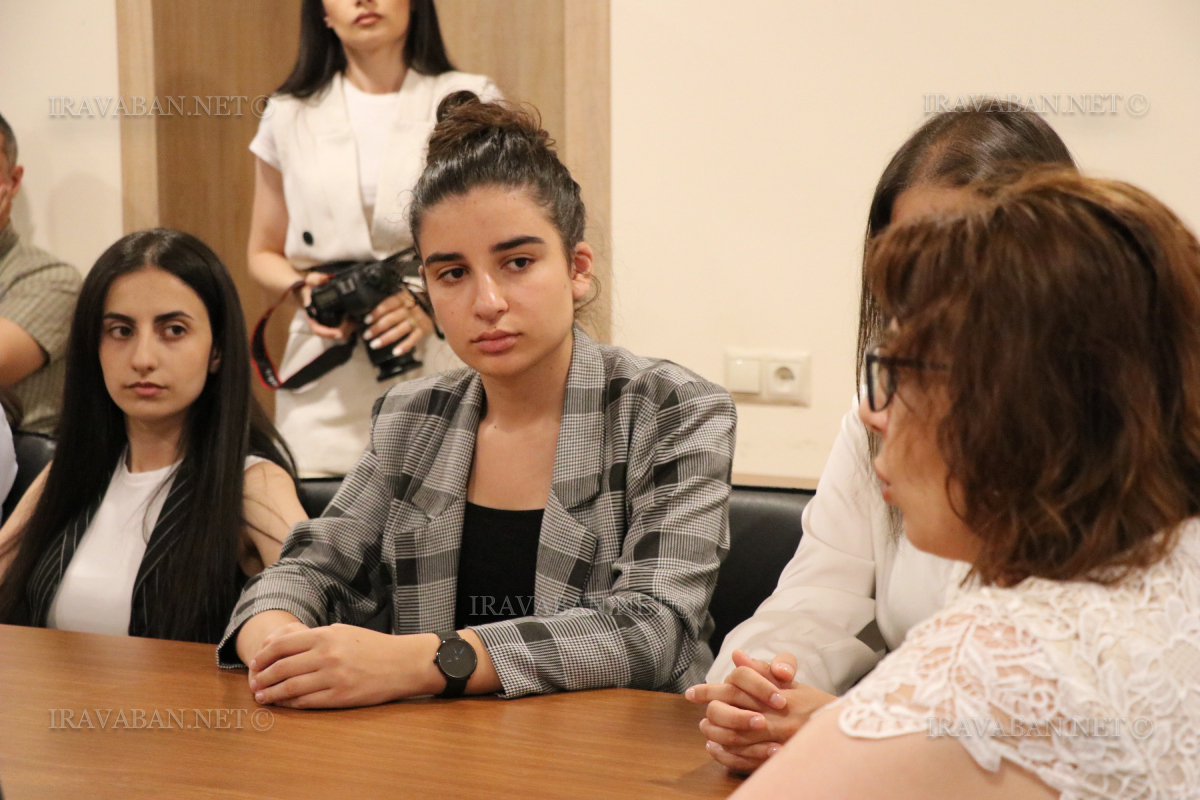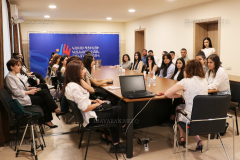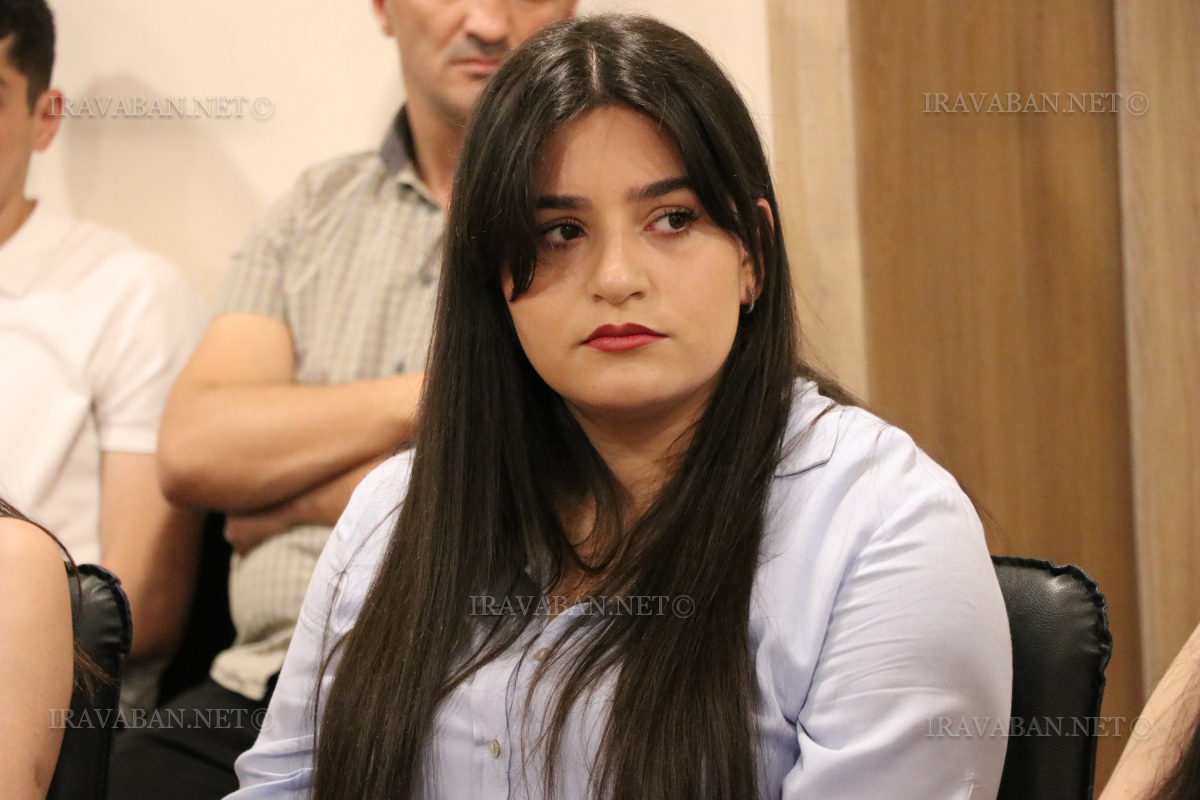
On 12 July, the students of the 9th stream of the Anti-Corruption School for Young Leaders, the 1st anti-corruption professional educational initiative operating in the Republic of Armenia, were hosted by the Corruption Prevention Commission (CPC) within the framework of the master classes and practical skills development phase of the the 9th stream of the school.
The Chairperson of the committee, Haykuhi Harutyunyan, received them in the structure. She presented to the participants of the school the main functions of the Commission and the problems faced by the body.
In order to make the fight against corruption smoother and effective, the CPC considers citizens as its main partner. There were cases when, under the influence of public pressure supporting the commission, the appointment of persons to certain positions was canceled.
“However, we need greater trust and you, as subjects of this most important educational component, are important for us to promote cooperation,” she said.
It is important to know that the Commission is not fighting corruption, but preventing it. In other words, it plays the role of the 2nd of the 3 main pillars of the fight against corruption. The first is education, then prevention, and finally, the inevitability of punishment.
The listeners of the Anti-Corruption School for Young Leaders were interested in both the declarations and the existing regulations regarding the behavior of candidates for various positions.
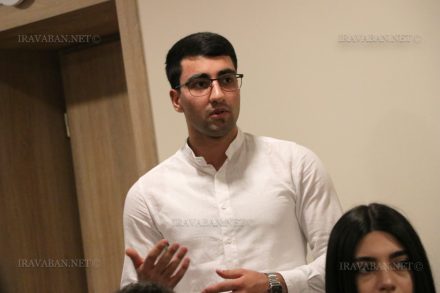 One of the listeners, Ara Mkrtchyan, drew attention to the fact that despite the negative conclusion of the commission on integrity, there were cases when people were appointed to high-ranking government positions. “If, after the appointment, the CPC sees a certain risk of corruption or the person receives the status of an accused in a case of corruption nature, in that case, should the body appointing the given person bear any responsibility for the appointment and not taking into account the Commission’s conclusion?”
One of the listeners, Ara Mkrtchyan, drew attention to the fact that despite the negative conclusion of the commission on integrity, there were cases when people were appointed to high-ranking government positions. “If, after the appointment, the CPC sees a certain risk of corruption or the person receives the status of an accused in a case of corruption nature, in that case, should the body appointing the given person bear any responsibility for the appointment and not taking into account the Commission’s conclusion?”
Haykuhi Harutyunyan noted that the legislation does not provide for the accountability of these state bodies. “For example, the accountability of the National Assembly was not formulated as a problem in our strategic documents, both from a legal, political and public point of view. When we formulate the problem of accountability, we, as the Corruption Prevention Commission, will never be worried about your question. It is the National Assembly that should ensure accountability.”
She noted that if a problematic appointment leads to another problem, the responsibility is no longer on the Commission, but on the appointing body. “And this body is accountability not to us.”
According to Haykuhi Harutyunyan, if it is possible to reach the milestone that accountability of separate functions of separate bodies to the Commission is defined as a problem, then after a year the process will have a different quality.
Tatev Asryan, Head of the Methodological Support Department of the Corruption Prevention Commission, presented the problems of the sector under her leadership and the initiatives and pilot programs that are under development.
Notably, the training in the Anti-Corruption School for Young Leaders will be organized in the following phases:
- ONLINE TRAINING PHASE, during which the students will pass a basic anti-corruption course consisting of 25 topics through the school’s online anti-corruption training platform. Those students who have completed all the knowledge test questionnaires and received the appropriate points for completing the online training will be considered completed the online training phase.
- MASTER CLASS AND PRACTICAL SKILLS DEVELOPMENT PHASE, during which students who have successfully completed the advanced stage of school will be divided into groups and each group will conduct a study, monitoring or investigation on one of the in-depth anti-corruption topics. During this phase, the work will be organized in the form of group meetings, discussions, and meetings with representatives of the sectors and other relevant bodies and organizations. Attendees will learn a range of innovative tools and gain related skills. At this stage, mentoring for groups is planned.
- PUBLIC AWARENESS PHASE, during which students who have successfully completed the practical skills development phase of the school will have the opportunity to disseminate their anti-corruption knowledge among young people through public awareness seminars.
- ADVANCED TRAINING PHASE, during which the best 15-20 participants who have achieved high results in the online training phase of the school, successfully completed the in-depth interview phase and are selected, will participate in the outreach (out of Yerevan) in-depth anti-corruption training. The in-depth training phase of the school will consist of the modules: “Anti-Corruption Advanced Training” and “Pillars of National Identity”.
- FINAL PHASE, during which the students who have successfully completed the practical skills development and public awareness stages of the school, will present their research and public awareness results to the reputable jury and the public.
Students who have passed and successfully graduated from all five phases of the School will be awarded GRADUATION CERTIFICATES of Anti-Corruption School for Young Leaders.
“The Armenian Lawyers’ Association” NGO is organizing the Anti-Corruption School for Young Leaders in cooperation with the CSO Anti-Corruption Coalition of Armenia.
The information partner of the Anti-Corruption School for Young Leaders is Iravaban.net, independent professional news website.


